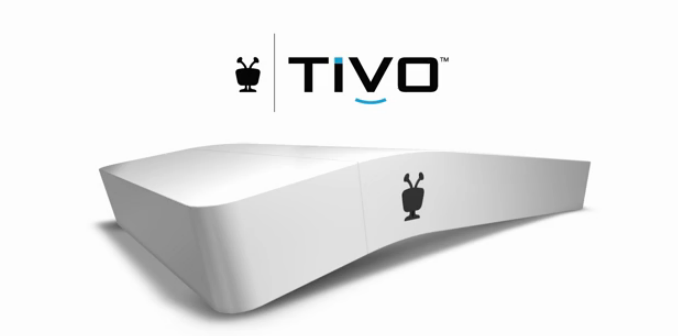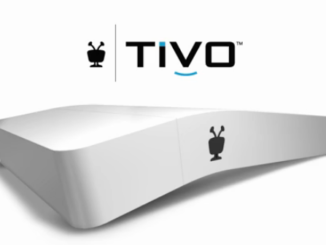
I’m putting a question mark on the title of this because, while <href=”#/bolt”>the Bolt is the newest and most powerful of TiVO’s line, it doesn’t have either the most storage (500 GB or 1tb vs. 3tb) or the most tuners (4 vs. 6). It is the only TiVO that supports 4K, gigabit networking, and has quick mode and skip mode making it into what some might call an ugly choice. That’s when two products collectively have all the features you want but you can’t get them on one product.
Since you can add external storage to the unit and a techy could likely upgrade the drive to a much larger one the storage is fixable and getting a second TiVO could solve the tuner problem (you can move programs between TiVO boxes) so there are work-arounds.
Here are my impressions of what is clearly the best DVR in the market after using it for a few days.
TiVO DVRs
A DVR like the TiVO Bolt is not for cord cutters, it is for folks that have cable (you can use it with satellite but I wouldn’t because the integration is ugly). While it looks like TiVO has discontinued their OTA (over-the-air) product you can still find it on Amazon for $50 and that is likely for folks still using an antenna or who can connect to cable without a cable card.
Now the advantages for those of us who have cable is the result is a system that can record—depending on the TiVO model—up to 6 TV shows at once and maintain a library of everything you missed or want to watch again. The current generation TiVO boxes go further in that they also capture in the same folder all of the streamed versions of shows and movies so you can easily catch up on a series if you didn’t record it from the beginning. With TiVO this is called One Pass.
TiVOs now support most of the major streaming services (YouTube, Netflix, Amazon Prime, Vudu etc.) and some streaming music services (iHeartRadio, Pandora, Spotify)—showcasing that it can perform cord-cutter duties as well.
Now, you do typically have to get cable cards to get this all to work. Cable cards are PCMCIA cards that plug into the TiVO boxes. They used to be a huge pain but most cable services now can just send you the cards, provision them remotely. The cable card tells the TiVO what channels you get so it’s all automatic. No channel scanning and no manual selection of channels anymore which is a huge improvement.
Now to move videos around your home you have the TiVO Mini which is a $150 box that will connect to and stream from the TiVO units with tuners. The only issue with these is that they require either a MoCA (uses a coax cable) adapter or an Ethernet Jack to work (they won’t work off of Wi-Fi). However, I’ve been able to use Wi-Fi extenders or bridged Wi-Fi routers to get them to work wirelessly just fine as they use relatively old and slow Ethernet technology. Recently you have also been able to use Amazon FireTV with a TiVO Beta app to move programs around but they only come in at standard definition (SD) quality.
You do have to subscribe to the TiVo indexing service which costs me $30 a month for my 2 TiVOs. But with a 6 tuner TiVO and TiVO Minis you could likely live off of one. You can log onto TiVO’s website from pretty much anyplace and program each one to watch.
Finally, you can stream from your TiVO to an Android or iOS tablet or phone but the ability to stream or record shows to a laptop has been discontinued for some screwy reason. Given that is where you typically have the largest screen and most storage I’m a bit torqued about that, personally.
Current TiVOs include the old Romeo for $200 which does have a Wi-Fi connection but only 10/100 Ethernet, 500 Gigabytes of storage, HD, and 4 tuners, the Romeo Pro at $599 which adds Gigabit Ethernet, and has 3 Terabytes of storage, and the new Bolt which is what I’m talking about for this review.
TiVO Bolt
The three big differences about the Bolt are that it represents the first of what is likely a new line of TiVO boxes. Coming in two configurations—either 500 gigabytes or 1 Terabyte of storage at $299 to $399—they have only 4 tuners but add SkipMode (one button commercial skip), QuickMode (a fast forward where you can still hear the sound so you can speed through programs without missing stuff), and support for 4K (assuming you can find 4K content). These ship with an included 1-year subscription to TiVO’s programing service which would typically be around $20 a month.
The design is a tad quirky in that you can no longer stack the product but, since they still use magnetic drives, this is likely for the best because TiVO boxes tend to run really hot so putting anything on top of one is likely to get cooked and not do the TiVO any good either.
They take an RF remote (by the way I’d been having a lot of trouble with my RF remote which apparently was because I’d plugged in the dongle that came with it not realizing that RF support was actually built into the newest TiVOs and the result was ugly) which doesn’t require line of site like the more typical IR (Infrared) remotes do.
On My 4K TV the picture was noticeably better with HD shows and I could stream 4K shows as well. I haven’t really found a need for QuickMode yet but one button commercial skipping, when it works, is awesome. Only thing is that not all programs are indexed for SkipMode, so you still have to fast forward through the commercials sometime.
Wrapping Up: Nice Upgrade
The only thing I don’t like about the Bolt is that it only has 4 tuners. With the massive amount of channels you can get on a cable service the probability you’ll want to record more than 4 shows comes up more often than you might think so it would be nice to have an upgrade. Having said that the SkipMode function, when it works, is simply wonderful as is the new 4K support.
The Bolt brings TiVO to the current age nicely by providing 4K support and SkipMode, and overall performance is better. I’m not sold on the look—white really doesn’t go with my black stereo equipment. Most of us put these things in a cabinet anyway and with RF remotes you don’t have to see the Bolt if you don’t want to.
I’d still like them to bring back PC support at least so you can put recorded programs on your PC to watch on planes or while traveling, and updated TiVO Minis that support 4K and Wi-Fi natively would be nice. I expect they are coming. Otherwise the Bolt confirms why I’ve been a TiVO fan for so long. It is simply the best way to watch TV currently in the market particularly if you have cable and a 4K TV.


Hi,I read your blog named “Living with the TiVO Bolt: The new king of DVRs? – PopSpective” on a regular basis.Your humoristic style is awesome, keep up the good work! And you can look our website about hide ip.